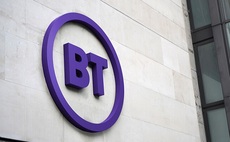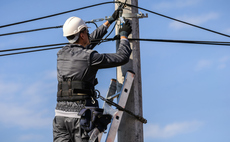Digital minster Matt Hancock promises government will do whatever it can to help deployments
The UK must have full fibre broadband coverage in the years ahead, rather than trying to make do with a mix of old copper services and newer fibre products, according to Matt Hancock, minister of s...
To continue reading this article...
Join Computing
- Unlimited access to real-time news, analysis and opinion from the technology industry
- Receive important and breaking news in our daily newsletter
- Be the first to hear about our events and awards programmes
- Join live member only interviews with IT leaders at the ‘IT Lounge’; your chance to ask your burning tech questions and have them answered
- Access to the Computing Delta hub providing market intelligence and research
- Receive our members-only newsletter with exclusive opinion pieces from senior IT Leaders





















